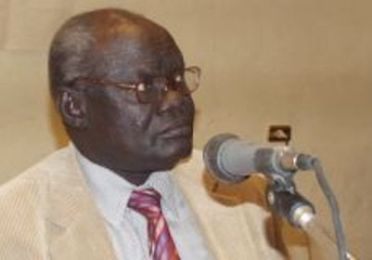Rebel defectors demand new inclusive dialogue in S. Sudan
August 30, 2015 (JUBA) – A group of defected rebel officials in South Sudan conflict have rejected a recently signed peace deal between the government of President Salva Kiir and the rebel faction under former vice president, Riek Machar, demanding that peace renegotiations between warring parties should take place inclusive of their group.

The group called upon the Intergovernmental Authority on Development (IGAD) to adopt a new strategy in the peace negotiation.
“We in the federal democratic [party] and South Sudan armed forces believe that the IGAD must adopt a new strategy in the peace negotiation. We believe that in order to bring a lasting peace to South Sudan, all parties and stakeholders in the conflict must be included in the peace talks so that any agreement reached by [parties] must [be] owned by South Sudanese,” the statement dated August 29, 2015 reads in part.
The statement criticized IGAD, an east African bloc, which mediated the end to more than 20 months conflict in the country, for allegedly restricting negotiations “to a few favoured clients are contrary to the spirit of peace.”
IGAD, according to the statement, must allow open discussion of the root causes that triggered the conflict. It expressed doubt whether president Salva Kiir and opposition leader Riek Machar will be able to work together after “failing to gain trust despite working for eight years in the same government.”
“Both president and Dr. Riek Machar worked with each other for eight years and could not trust each other. It is doubtful whether these leaders will invent or generate any trust between them in the short period of transitional period,” he Changson said.
“Due to this mistrust between the two leaders, it remains to be seen whether the Juba massacre will not repeat itself,” he further predicted.
He claimed that the peace agreement between Kiir and Machar failed to recognize the Juba massacre and this “is very disappointing to the Nuer ethnic group in general and the families of the massacred people in particular.”
However, the peace agreement provided for compensation and reparation of the victims of the massacre in Juba and in other areas. A report by the African Union’s Peace and Security Council also addressed the Juba massacre and to hold those responsible to account once it is released during the implementation of the peace deal.
But Changson further predicted that rivalry between the two major communities of Dinka and Nuer may continue.
“This shows lack of respect for the dead and this can heighten the sentiments that can threaten reconciliation and healing between the Nuer and the Dinka ethnic groups,” he argued.
The statement further added that imposed peace hardly changes the attitude and behaviours of people involved in the conflict, thus demanding the need to involve all the stakeholders in negotiations.
“In condemning this agreement, we are aware and convinced that this imposed peace will not alleviate the suffering of our people. We have learnt from the history that imposed agreement do not change attitude and behaviours of people previously in conflict. It is only when agreement and reconciliation are concluded through free wills of the people that commitment and respect for those agreement is upheld,” he added.
(ST)
